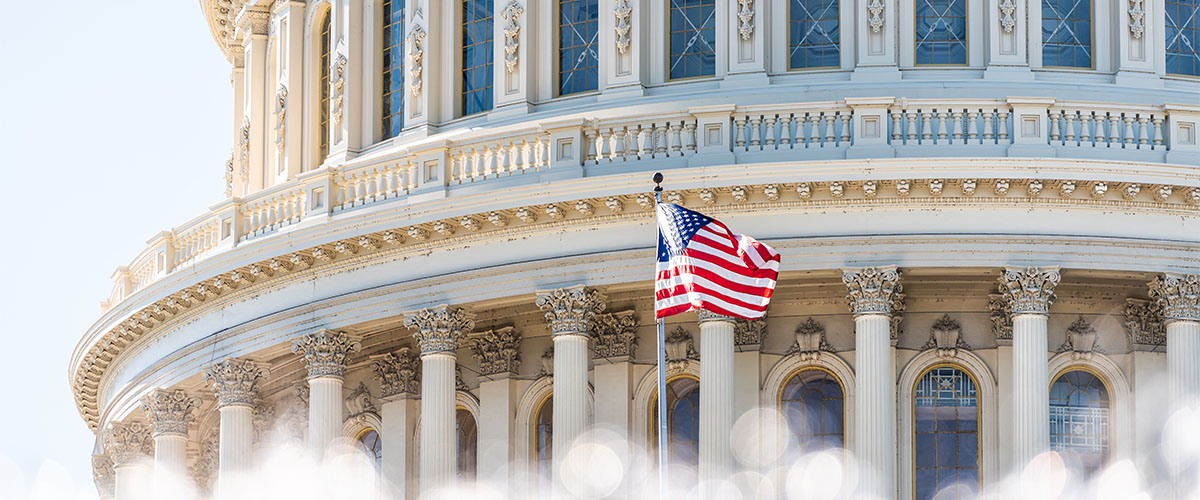Several social justice organizations authored a letter sent to Democratic majority leaders asking them to wait on voting on marijuana banking legislation.
A group of civil rights groups is asking for a delay in voting on a marijuana banking bill set for a United States House of Representatives vote next week. The coalition seeks an agreement prior to a vote that would broaden the marijuana reform bill.
“We are concerned that if the House approves this bill, it will undermine broader and more inclusive efforts to reform our country’s marijuana laws,” the authors wrote in the Sept. 17 letter addressed to House Speaker Nancy Pelosi (D-CA) and House Majority Leader Steny Hoyer (D-MD).
The SAFE Banking Act, which cleared the Financial Services Committee in the spring, allows financial institutions to serve state-legal cannabis businesses and ancillary companies without fear of federal intervention.
Hoyer’s office on Friday confirmed that the marijuana banking bill would be put to a landmark vote in the House next week.
Members of the civil rights groups are concerned that the cannabis banking bill doesn’t go far enough. While the bill aims to protect banking institutions who provide services to cannabis businesses, it does not focus on cannabis legalization, criminal reform, or investment in opportunity for communities impacted by prohibition.
The letter was sent by the American Civil Liberties Union, Center for American Progress, Drug Policy Alliance, Human Rights Watch, JustLeadershipUSA, Lawyers’ Committee for Civil Rights Under Law, and the Leadership Conference on Civil and Human Rights.
“The Congress has a unique opportunity to address the myriad injustices created by this nation’s marijuana laws. For decades, people of color have suffered under harsh and racially-biased marijuana laws,” the groups wrote.
“The banking bill does not address marijuana reform holistically. Instead, it narrowly addresses the issues of banking and improved access to financial services, measures that would benefit the marijuana industry, not communities who have felt the brunt of prohibition.”
Rep. Alexandria Ocasio-Cortez (D-NY) and Sen. Chuck Schumer (D-NY) have indicated that they agree with the group’s concerns.
The letter is available to read in full, here.
Despite the objections, Democratic leaders still plan to advance the SAFE Banking Act under an expedited procedure called suspension of the rules. The bill would need a two-thirds majority (290 votes) to pass. The bill already has 206 cosponsors.
As outlined in the colloquy between @LeaderHoyer and @SteveScalise, next week the House will consider:
•Suspension bills including HR 1595 – SAFE Banking Act of 2019… (1/2)— House Press Gallery (@HouseDailyPress) September 20, 2019
Presidential Candidates Ask For Social Justice In Marijuana Legislation
Several presidential candidates have voiced their support for cannabis legislation with broader social justice reform. On Sept. 20, presidential candidate Cory Booker (D-NJ), lead sponsor of the Marijuana Justice Act, reiterated his stance on potential marijuana legislation.
Booker tweeted, “As I said earlier this year, any marijuana legislation moving through Congress must include restorative justice for those most harmed by the War on Drugs in order to get my vote.”
As I said earlier this year, any marijuana legislation moving through Congress must include restorative justice for those most harmed by the War on Drugs in order to get my vote.https://t.co/Y1dOwgHbm2
— Sen. Cory Booker (@SenBooker) September 20, 2019
Although Booker did not specifically call out the SAFE Banking Act in his post, the timing indicates that he may agree with the civil rights groups asking for a delay in voting on the marijuana banking legislation.
In April, Booker chose not to cosponsor the Strengthening the Tenth Amendment Through Entrusting States (STATES) Act. The bipartisan legislation would amend the Controlled Substances Act to provide protection for states with cannabis legalization from federal intervention.
Two other top Democrats partnered on a marijuana reform bill earlier this year that would federally legalize cannabis with the focus on social justice restoration. In July, Rep. Jerrold Nadler (D-NY), leader of the House Judiciary Committee, and 2020 presidential candidate Sen. Kamala Harris (D-CA) introduced the Marijuana Opportunity Reinvestment and Expungement (MORE) Act.
The MORE Act would remove THC from the Controlled Substances Act, and expunge certain marijuana convictions, while reinvesting federal funds into communities of color.
More Cannabis News
Want to know the latest news on cannabis policy? Visit our news page for more.






